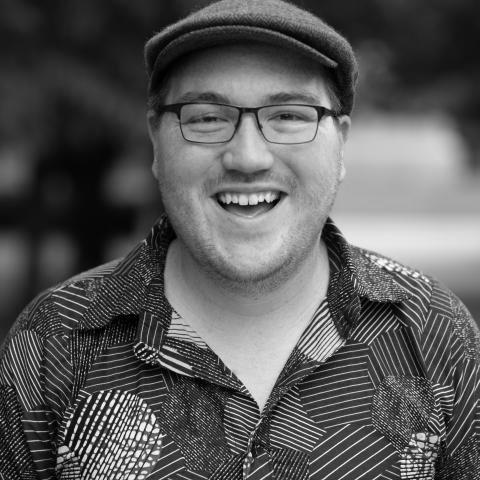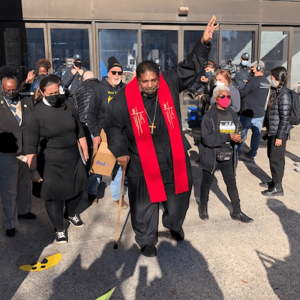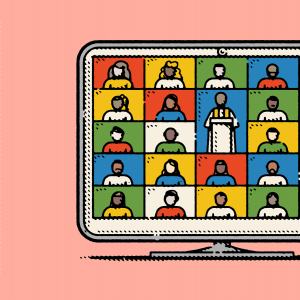
Miguel Petrosky is an essayist, writer, and journalist based in Washington, D.C., and whose work has appeared in Sojourners and Religion & Politics. You can follow him on Twitter @petrosky_miguel.
Miguel grew up in Covington, Virginia — a paper-mill town in the heart of Appalachia. A graduate of the College of William and Mary in Williamsburg, Virginia, Miguel received his B.A. in government with a minor in music and was active in both the faith and music communities around campus.
Miguel was raised in the Pentecostal tradition, but became a Presbyterian while in college, and in many ways, carries a Pentecostal vibrancy in how he lives his faith within the reformed tradition. Miguel likes to think that he can take out the “frozen” out of the “frozen-chosen.” An avid reader and writer, jazz-pianist and classically-trained singer, Miguel also describes himself as a “horribly-recovering coffee addict.”
Miguel enjoys trips to museums and art galleries, classical-music concerts and recitals, and tries to use as many puns within a conversation as socially acceptable. He is excited to be closely looking at the intersections of faith and politics while in intentional-community.
Posts By This Author
Spiritual Warfare on the Feast of the Epiphany
Jan. 6: The Feast of the Epiphany. The day that marks the revelation of God’s incarnation in Jesus Christ. It was an important day in my family growing up. On “King’s Day,'' in Puerto Rican custom, children would go to the fields and pick grass to leave under their beds. By the next morning, the “Magi” would have already visited — leaving presents in lieu of grass, their camels well-fed from the grass for their journey to the next house.
Poor People’s Campaign Protests Manchin’s ‘Sinful’ Policy Positions
Revs. William Barber II and Liz Theoharis, co-chairs of the Poor People’s Campaign, held a press conference and protest in the front of the Hart Senate Office Building in Washington, D.C., on Dec. 14 to pressure Sen. Joe Manchin (D-W.Va.) to meet with and hear the concerns and demands from the West Virginian delegates and other members of the campaign.
The pair read from a letter citing the parable of the sheep and the goats in Matthew 25:31-46, calling on Manchin to pledge full support for the Build Back Better plan and the John Lewis Voting Rights Act.
What Can Mutual Aid Do In a Disaster?
Over the last year and a half, mutual aid’s increased popularity has helped people connect with neighbors, build relationships, and attempt to combat racism and economic inequality. Now, mutual aid structures are being tested by hurricanes, fires, and other climate crisis-induced natural disasters, showing the strengths and limitations of neighbors helping neighbors.
The Politics of Pentecostalism
THE PASSION CENTER is a Christian community in Pembroke Pines, Fla., about 20 miles north of Miami. The organization is affiliated with the Assemblies of God, a Pentecostal denomination, but it neither emphasizes its denominational ties nor resembles a traditional church. This self-described “holistic ministry training center” has no building, but it has a mission to keep Jesus and social justice intertwined.
The faith community was founded and is led by Elizabeth Rios, who earlier started the Center for Emerging Female Leadership in New York. Members of the Passion Center used to meet regularly for community service projects, local demonstrations advocating for the priorities of marginalized communities, dinners in local restaurants, and a monthly comedy night for their neighborhood. The pandemic shut down the in-person gatherings. Unlike many other Pentecostal and charismatic churches, the Passion Center leadership had no qualms about following the science. They had no building to close; they just transitioned their ministries online. The Passion Center is one example of Pentecostals who don’t mind getting politically engaged in justice work to further the reign of God here on earth.
Pentecostalism is one of the fastest growing Christian movements in the world. In 1980, about 6 percent of Christians globally were Pentecostal—now it’s 25 percent. As of 2014, there were 10 million Pentecostals in the U.S. In many places around the world, Pentecostalism is the predominant face of Christianity. These rising numbers are shifting Christianity’s demographic center from the prosperous North to the global South.
Christian QAnon'ers Want to #SaveTheChildren. They're Making Things Worse
Why does QAnon resonate with these evangelicals? Part of the answer is their strong political alignment with the president, but it’s also true that evangelicals have long organized around the issue of human trafficking. And according to the major anti-human trafficking organizations in the U.S., that axis of devotion and suceptibility due to political alignment is creating a nightmare for their work.
This Isn't the First Time Christians Have Opposed A Racial Justice Movement
Although more politically conservative and evangelical voices are joining in the #BLM chants of “No Justice, No Peace,” there are undoubtedly shaky voices and (perhaps hostile) minds who hold that while black lives do matter “in theory,” radical institutional change is far too dangerous and subversive, if not completely un-American.
Dangerous Theology: Dissecting the Faith Arguments Against Social Distancing
Despite the switch of rhetoric on the coronavirus in the past week from both President Trump and Fox News, some church leaders still refuse to close their doors. They tend to fall into a few different camps.






